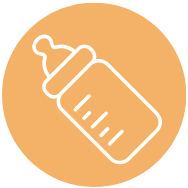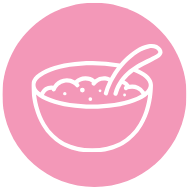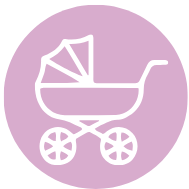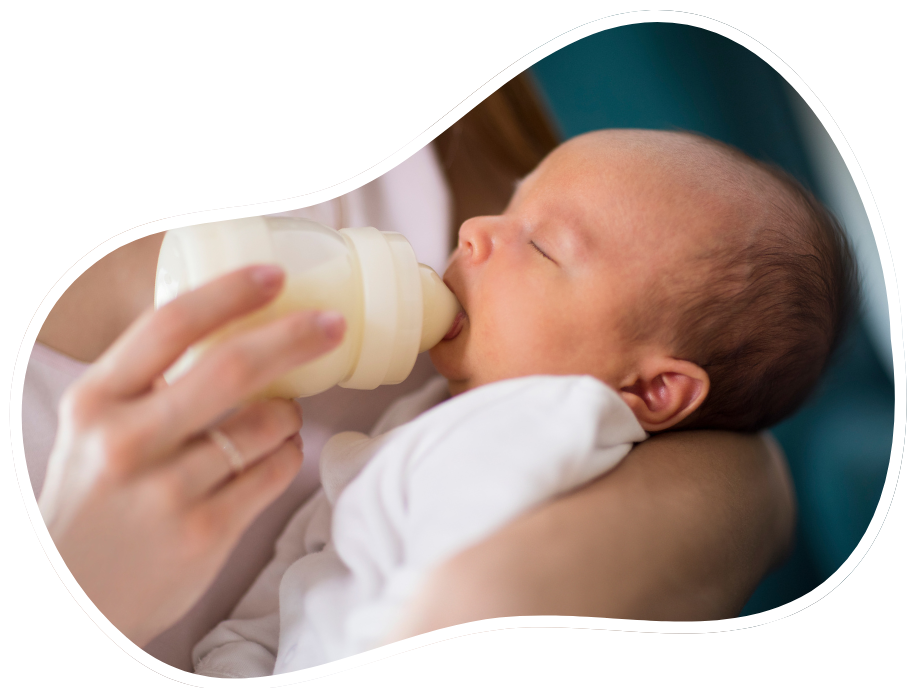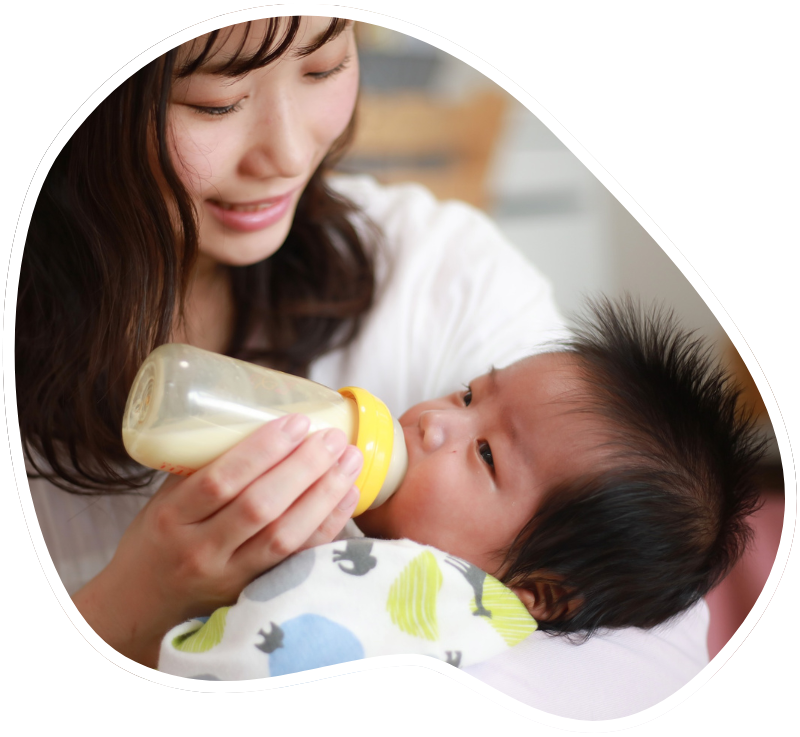Toddler Formula: Should You Use It? A Comprehensive Parent's Guide to Toddler Formula

As children grow, their nutritional needs change, and parents often wonder about the best options to support their toddler’s development.
It’s true - most toddlers do not need toddler formula, but sometimes it is the best option for a family or a healthcare provider might recommend it.
The decision to use a toddler formula vs whole milk can feel daunting, especially when transitioning from infant formula or breast milk.
Let's break down everything you need to know about toddler formulas, from their differences with infant formulas to nutritional comparisons with whole milk, and more.

What is the Difference Between Infant and Toddler Formula?
Infant formulas are specifically designed to mimic the nutritional profile of breast milk and are suitable for babies from birth to 12 months. These formulas contain the necessary nutrients like proteins, fats, vitamins, and minerals that a baby needs for rapid growth and development during the first year of life.
Toddler formulas are made for children aged 12 months and older. These formulas typically contain higher levels of certain nutrients like calcium, iron, and vitamin D to support continued growth, immune health, and development in toddlers.
Unlike infant formulas, toddler formulas sometimes include added flavors and sweeteners to make them more palatable for older children.
The FDA strictly regulates the ingredients in infant formulas, while toddler formulas are regulated like any other food item since they are often not the sole source of nutrition for toddlers.
Every infant formula has a recipe that has been proven to support infant growth and development. Each ingredient is strictly regulated, and there are guidelines to follow when introducing a new formula. Toddler formula can contain any added nutrients are do not necessarily mimic breastmilk - some are even made of pea protein.
Why Should You Not Give Infant Formula After One Year?
Infant formula is tailored for a baby’s rapid growth in the first year, focusing on brain development and providing essential fats.
After the first year, a toddler’s nutritional needs change.
Continuing with infant formula after one year may provide excess calories, protein, and certain vitamins that a toddler no longer needs in such high amounts.
Before a baby turns one, their primary source of nutrition comes from breastmilk or formula. After a baby turns one, their primary source of nutrition should come from food. Whole milk or milk alternatives are given for extra nutrients and hydration.
A varied diet consisting of solid foods, breast milk, whole milk, or toddler formula (if needed) is recommended.

Toddler Formula vs. Whole Milk: Nutritional Components
One of parents' biggest questions when transitioning from infant formula is whether to choose whole milk or toddler formula. Here’s a comparison of their nutritional components:
-
Calories and Fats: Whole milk provides sufficient calories and healthy fats necessary for brain development. Toddler formulas are often designed to provide similar calorie content and sometimes higher fat content to ensure energy for growth.
-
Vitamins and Minerals: Whole milk is rich in calcium and vitamin D, essential for bone health. However, toddler formulas may also include added vitamins like A, D, and E and sometimes even iron, which may not be present in adequate amounts in whole milk.
-
Sugars and Additives: Many toddler formulas contain added sugars, flavors, and other ingredients like corn syrup solids or vegetable oils. These may not always be necessary and can contribute to children's preference for sweet flavors.
-
Proteins and Carbohydrates: Whole milk contains naturally occurring proteins and lactose, a natural sugar. Toddler formulas might contain modified proteins and different types of carbohydrates to make digestion easier for toddlers.
>>> Read more about choosing whole milk vs milk alternatives <<<
Why Might a Family Want to Give Toddler Formula?
While most families choose to switch to whole milk or a milk alternative, there are a variety of reasons families use toddler formula:
-
Nutrient Gaps: If a toddler is a picky eater or has dietary restrictions, toddler formulas can help fill in nutritional gaps.
-
Food Allergies or Sensitivities: Toddler formulas, especially those made from non-dairy sources like soy, pea protein, or hydrolyzed proteins, are suitable for children with dairy allergies or lactose intolerance.
-
Convenience: For parents who are often on the go or have busy schedules, toddler formulas can provide an easy and reliable way to ensure their child gets essential nutrients.
Why Are Toddler Formulas Not Recommended by the AAP?
The American Academy of Pediatrics (AAP) does not routinely recommend toddler formulas. Here are a few reasons why:
-
Unnecessary Nutritional Additives: The AAP argues that a well-balanced diet with a variety of solid foods should provide all the nutrients a toddler needs. Toddler formulas, which often contain added sugars and other unnecessary ingredients, may not offer significant benefits over a balanced diet.
-
Potential for Over-Reliance: There is a risk that parents might rely too heavily on toddler formulas and not encourage a diverse diet, leading to poor eating habits and nutritional gaps in the long term.
-
Marketing Tactics: Toddler formulas are often marketed in a way that makes them seem essential for development, but they are not regulated as strictly as infant formulas. This can lead to confusion among parents regarding their necessity.
-
Higher Cost: Toddler formulas are often more expensive than whole milk and other food options that can provide similar or even better nutrition.
At What Age Should You Switch to Toddler Formula?
If you decide to use toddler formula, it is typically introduced after the child’s first birthday when they transition from infant formula or breast milk.

How Much Toddler Formula for a One-Year-Old?
The amount of toddler formula a one-year-old needs can vary based on their overall diet and nutritional needs. Toddlers at this age should get most of their nutrition from solid foods. If a family decides to use toddler formula, it is usually in addition to a well-balanced diet.
A standard guideline is to offer 16-24 ounces (2-3 cups) of milk or milk alternatives (including toddler formula) per day or less if your child eats a lot of dairy. Too much dairy can decrease the absorption of iron and make them less likely to be hungry for other foods.
Please speak with your pediatric provider about your toddler’s needs.
When to Stop Toddler Formula
Most toddlers can stop using toddler formula between 18-24 months as they become used to a variety of solid foods and can get adequate nutrition from their diet.
After this point, whole foods should be the primary source of nutrition unless there is a specific reason to continue.

Popular Toddler Formula Brands and Features
There are several toddler formula brands available in the market, each with unique features catering to different needs:
-
Else Nutrition: A plant-based toddler formula that is changing the game. It is made from high-quality ingredients like almonds, buckwheat, and tapioca, is clean-label verified and is ideal for families looking for dairy-free or vegan alternatives. They also have a toddler formula with added DHA, which is important for brain development. Click here to learn more.
-
Serenity Kids: Known for its clean ingredients, Serenity Kids Toddler Formula focuses on using organic ingredients, grass-fed A2 whole milk, and essential fatty acids like DHA. It's free from corn syrup, gluten, and palm oil, making it a popular choice among parents seeking more natural options. It also is clean-label verified.
-
Enfagrow: A well-known brand, Enfagrow Toddler Formula is the next step for some babies on Enfamil. It is fortified with DHA, iron, and other essential nutrients. It is designed to support brain development and growth but contains added sugars, which may be a consideration for some parents.
-
Toddler Grow and Go: This formula is marketed as a complete nutritional option for picky eaters and is the next step for babies on Similac 360. It includes key nutrients like DHA, iron, and calcium and aims to support immune health, brain development, and growth.
-
Kendamil Toddler Formula: Made with whole milk, Kendamil offers a natural, organic option without palm oil or GMOs. It’s a good choice for families looking for a more natural formula.
-
Kabrita Goat Milk Toddler: Made from gentle, non-GMO goat milk, which is easier to digest for some toddlers compared to cow's milk. It contains DHA, prebiotics, and 22 vitamins and minerals. It’s a good option for children who may have cow milk sensitivity but are not allergic to dairy.
-
Baby’s Only Toddler Formula: Another toddler formula made from pea protein. Baby’s Only is known for being organic and free from GMOs, corn syrup, and palm oil. It offers dairy and lactose-free options, making it suitable for children with specific dietary needs. It is fortified with DHA and ARA to support brain and eye development.

These brands provide a variety of options, from organic and plant-based to more traditional milk-based formulas. Choosing the right one depends on your toddler’s dietary needs, preferences, and any specific health considerations.
Deciding whether to use toddler formula can depend on your toddler's unique needs, dietary preferences, and nutritional gaps. While they are not always necessary for every child, toddler formulas can be helpful in certain situations. Always consult with a pediatrician before making changes to your child's diet, and remember that a balanced, varied diet of solid foods is the foundation for healthy growth and development.
*This post contains affiliate links. If you purchase with my links, a small portion comes back to my business at no extra cost to you.
free guide
The FREE Printable 150 First Foods Guide
We hate SPAM. We will never sell your information, for any reason.







